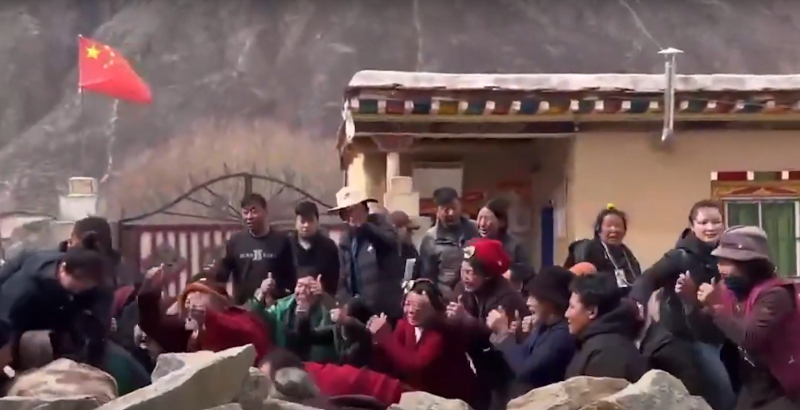13 UN Experts Call on China to Halt Violations in Derge, Tibet

13 UN Special Procedure Mandate Holders have issued a communication letter to the Chinese government raising extreme concerns against the widespread violations and crackdown against Tibetans expressing opposition to the Kamtok hydroelectric power plant in Derge County, Tibet. The joint communication signed by 13 United Nations Independent Experts was issued on 8 July 2024 and was made public today on 6 September 2024. A similar joint communication has also been issued to the Huadian Jinsha River Upstream Hydropower Development C., Ltd., a subsidiary of the state-owned enterprise China Huadian Corporation Ltd. which is involved in the construction of the dam.
In the communication, the experts have raised deep concerns on the widespread “violations and human rights abuse of the Tibetan communities, leaders, and religious figures living in the surrounding areas.” They have noted that the authorities have failed to hold meaningful consultations and obtain free, prior and informed consent of the people whose lives are directly and irreversibly impacted by the dam construction which amounts to “arbitrary displacement.” The experts have also raised concerns about the “reprisals, use of force, arbitrary arrests and detentions, for some incommunicado, of hundreds of Tibetans” for excersing their basic human rights.
Raising extreme concerns about the environmental damage, the experts have underscored “dire and irreversible environmental and climate impacts that the dams could cause in the Tibetan plateau, to China and the region” and have called for “an independent, adequate and comprehensive environmental and human rights impact assessment before any construction and development of the project, including assessing other potential alternatives for the energy needs.”
The experts have noted that the acts of the Chinese government are in violation of Tibetans’ basic human rights like cultural rights including right of everyone to enjoy one’s own culture and to take part in cultural life; right to freedom of opinion and expression, right to freedom of peaceful assembly and association; right to information and to participate meaninfully in public affairs etc. The experts have noted that “these incidents underscore the alarming reality for people living in Tibet, who have faced similar allegations and consequences, for exercising their fundamental rights.”
Calling on the Chinese government to take necessary interim measures to halt all the violations, the Experts have asked the government to provide information and detailed reports on matters involving the dam construction and violations of human rights of Tibetans. Particularly they have asked reports regarding all the “environmental (including biodiversity and climate), socio-cultural and other human rights impact assessments conducted prior to the beginning of the work on the Kamtok (Gangtuo) dam”; measures taken to inform the Tibetan communities and seek their free, prior and informed consent; how the forced relocation complies with the laws and how the government intends to protect the rights of the Tibetans.
Welcoming the joint communication of the special rapporteurs, Thinlay Chukki, Representative of His Holiness the Dalai Lama and the Central Tibetan Administration for Central and Eastern Europe has thanked them for their detailed communication of concerns and noted that “the Chinese government should proactively submit all the detailed reports called for by the special rapporteurs and ensure that the concerned persons responsible for these violations should be held accountable.”
The joint communication was issued by Alexandra Xanthaki, Special Rapporteur in the field of cultural rights; Ganna Yudkivska, Vice-Chair on Communications of the Working Group on Arbitrary Detention; Robert McCorquodale, Chair-Rapporteur of the Working Group on the issue of human rights and transnational corporations and other business enterprises; Elisa Morgera, Special Rapporteur on the promotion and protection of human rights in the context of climate change; Surya Deva, Special Rapporteur on the right to development; Astrid Puentes Riaño, Special Rapporteur on the human right to a clean, healthy and sustainable environment; Irene Khan, Special Rapporteur on the promotion and protection of the right to freedom of opinion and expression; Gina Romero, Special Rapporteur on the rights to freedom of peaceful assembly and of association; Balakrishnan Rajagopal, Special Rapporteur on adequate housing as a component of the right to an adequate standard of living, and on the right to non-discrimination in this context; José Francisco Cali Tzay, Special Rapporteur on the rights of Indigenous Peoples; Paula Gaviria, Special Rapporteur on the human rights of internally displaced persons; Nicolas Levrat, Special Rapporteur on minority issues; Nazila Ghanea, Special Rapporteur on freedom of religion or belief.
